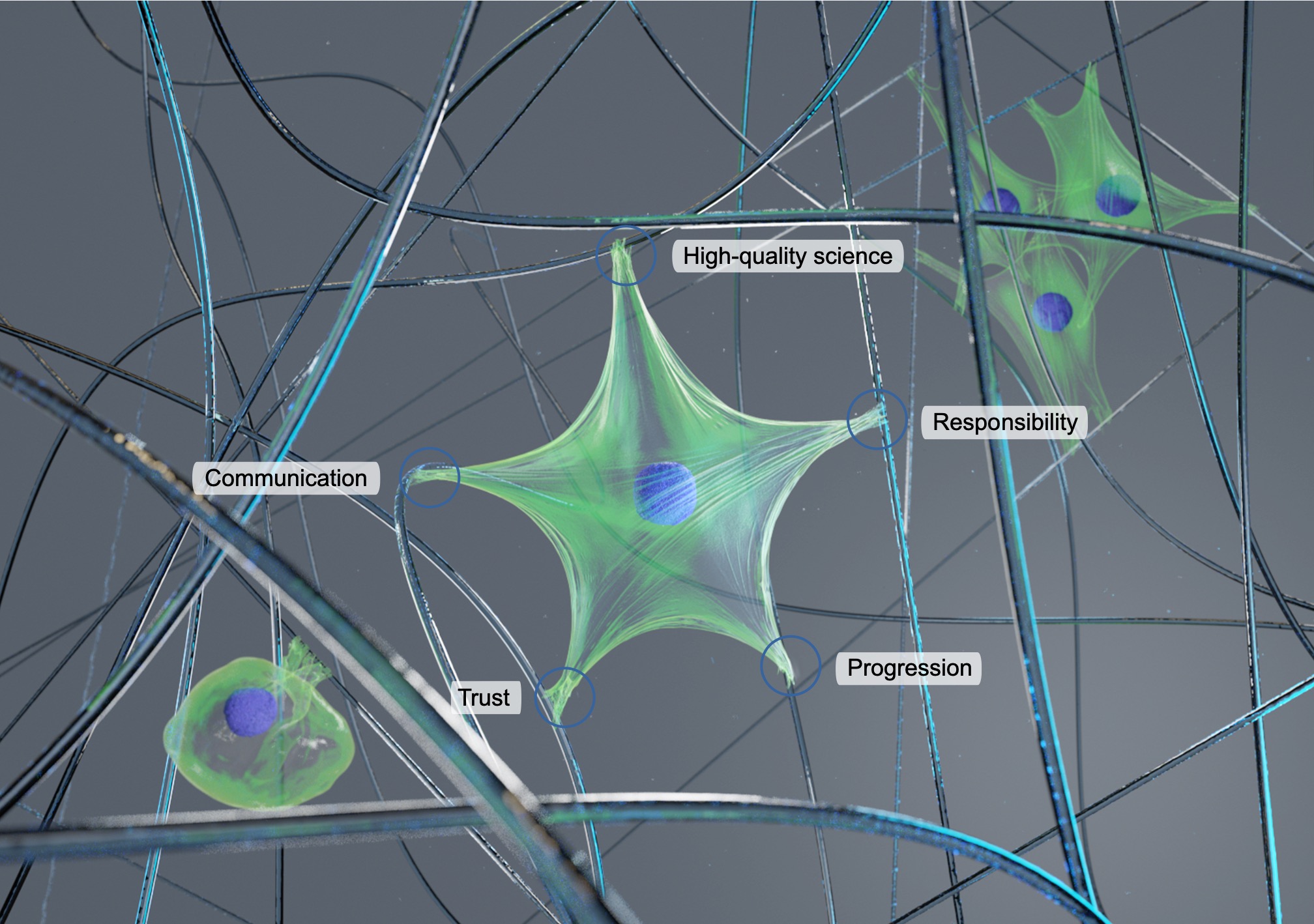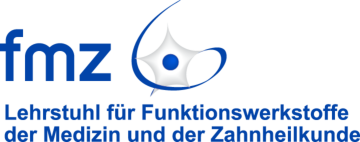PREAMBLE
Our chair is part of the Institute for Functional Materials and Biofabrication at the Julius-Maximilians University of Würzburg. We are an interdisciplinary team that develops innovative bioactive materials for applications ranging from fundamental biomedical questions to human applications.
We aspire to conduct scientific research and teaching of the highest quality. To maintain our high standards with great efficiency, we rely on an integrative leadership style.
The basis for this is a common set of values that all employees can identify with. Equal opportunities for all our employees, as well as the attention and promotion of their professional and personal development, are important to us.

HIGH-QUALITY SCIENCE
Our claim is science and research at the highest international level. We demonstrate this by regularly publishing our research results in recognised scientific journals and acquiring external funding in competitive and peer-reviewed procedures.
To achieve this, we constantly put our work in context with the international scientific community and critically evaluate results. We analyse experimental results transparently and without bias, and develop our projects with curiosity and creativity. Thereby we gain insights into new research questions and develop novel approaches to effectively solve problems.
“The quality of a researcher is not measured by the number of answers he gives,
but by the quality of the questions he asks.”
Aba Assa
Sense of RESPONSIBILITY
For us, this means that our employees see themselves as individuals that are acting as a part of the larger department community. In this context, it is of central importance to develop an awareness of the effects of one’s own actions and behaviour. This includes, among other things, reliably fulfilling obligations and adhering to agreements.
Responsibility, for us, also means that everybody contributes to a climate of mutual support to maintain a pleasant and productive working environment. These responsibilities are also reflected in teaching, supervision, and interactions with collaborators, external funding agencies, scientific communities, and the public.
PROGRESSION
For us, continuous development, both on a professional and personal level, is non-negotiable. Curiosity, courage, and the willingness to tackle new challenges form the foundation for this in each individual.
An important component is the recognition and promotion of existing strengths and potential. To achieve this, we meet each other openly and provide mutual support. In this way, we create an environment in which everyone has the opportunity to grow and to achieve their maximum potential.
“Life is like riding a bicycle.
To keep your balance, you must keep moving”
Albert Einstein
TRUST
The foundation of our mutual trust is the personal integrity of each individual, as well as honesty towards oneself and in our dealings with each other. Acting in accordance with the core values of our department enables open communication and good cooperation across all hierarchical levels.
We also promote the trust that others have in us by achieving our goals of excellence, creativity, and recognition in research and teaching as well as through our commitment to good scientific practice.
COMMUNICATION
At our chair, all employees encounter each other in a respectful and unbiased manner. Communication takes place openly, regardless of hierarchy. Depending on the situation and topic, discussions are planned in an appropriate setting and in a language that is understandable to everyone involved.
Our goal is direct communication to keep each other up-to-date and to support the advancement of our common ideas. A professional exchange of controversial arguments is facilitated by a result-oriented atmosphere that is open to compromise. This is how we drive our scientific and individual development without disregard for personal circumstances.
“What is thought is not yet said,
what is said is not properly heard,
what is heard is not properly understood,
what is understood is not always accepted,
what is accepted is not always applied,
what is applied is not always kept.”
Konrad Lorenz
